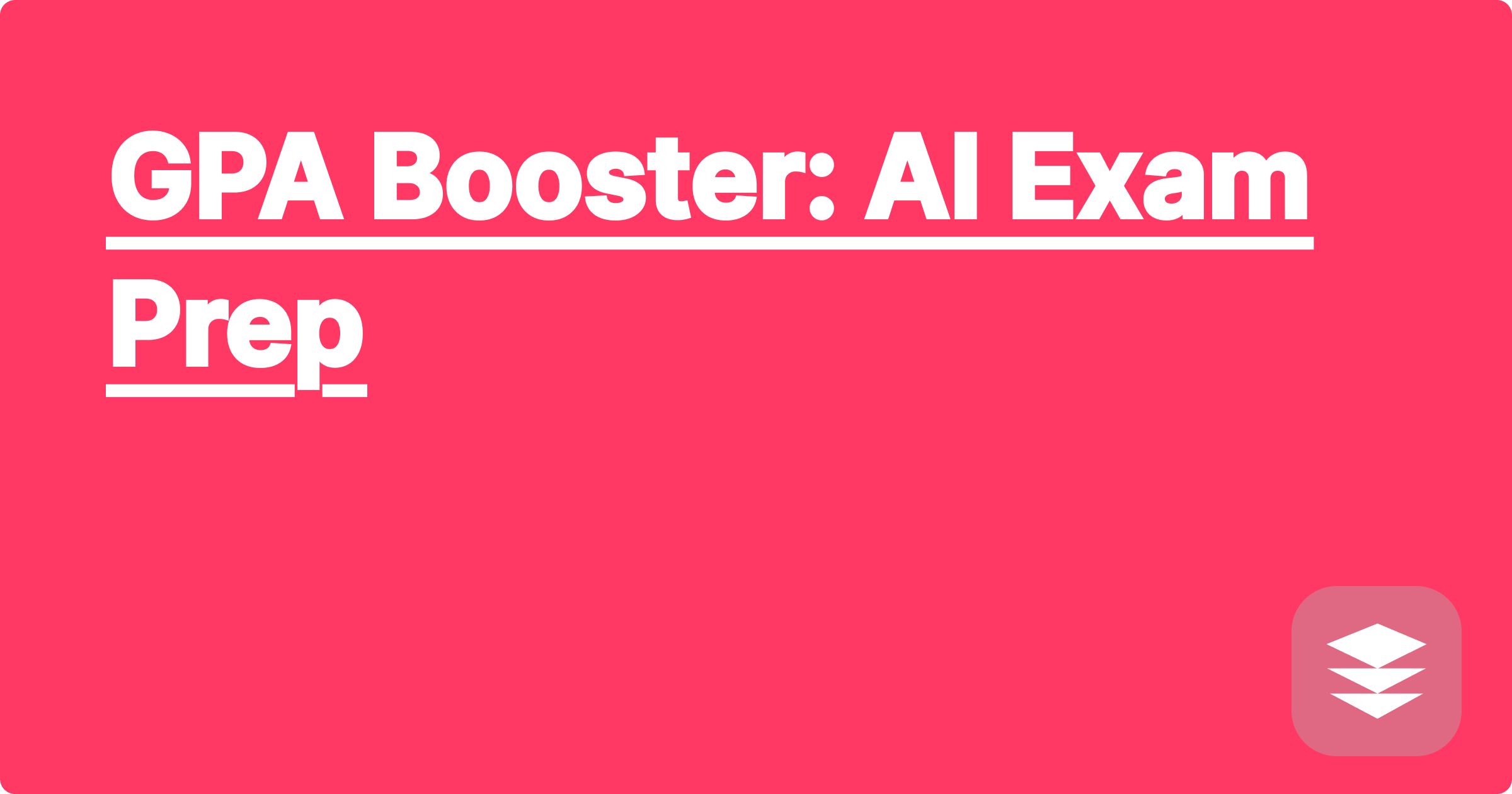
The demanding landscape of STEM education presents a significant challenge: effectively preparing for complex exams while balancing rigorous coursework and research. Students often find themselves overwhelmed by vast amounts of information, struggling to synthesize key concepts and apply them under pressure. Artificial intelligence (AI) offers a powerful new approach to exam preparation, providing personalized learning experiences and intelligent study tools that can significantly enhance comprehension and retention.
For STEM students and researchers, strong academic performance is crucial for future opportunities, whether pursuing graduate studies, securing competitive internships, or entering the workforce. A high GPA often serves as a gatekeeper for these opportunities, making effective exam preparation a critical factor in long-term academic and career success. AI-powered study tools can provide a crucial edge, helping students optimize their study time and achieve their academic goals.
STEM exams typically require a deep understanding of complex concepts, the ability to apply these concepts to solve problems, and often, the memorization of intricate formulas and equations. Traditional study methods, such as rereading textbooks and passively reviewing notes, can be inefficient and often fail to promote true understanding. Students may struggle to identify their weaknesses, prioritize key concepts, and practice applying their knowledge effectively. The sheer volume of material covered in STEM courses can also contribute to feelings of overwhelm and anxiety, further hindering effective learning and exam performance. Furthermore, the rapid pace of advancements in STEM fields necessitates continuous learning and adaptation, making traditional study methods even less adequate in preparing students for the challenges ahead.
AI tools like ChatGPT, Claude, and Wolfram Alpha offer a new paradigm in exam preparation. ChatGPT and Claude can be used to create personalized study guides, generate practice questions, and explain complex concepts in a conversational manner. These tools can break down intricate topics into smaller, more manageable chunks, making them easier to understand and remember. They can also provide immediate feedback on practice questions, helping students identify areas where they need to focus their efforts. Wolfram Alpha excels in computational tasks, allowing students to quickly solve complex equations, visualize mathematical concepts, and explore scientific data. By leveraging the power of these AI tools, students can create a more targeted and efficient study plan, maximizing their learning potential and improving their exam performance.
Begin by identifying the key concepts and topics covered in the upcoming exam. Use your syllabus, lecture notes, and textbook as a guide. Next, input these topics into ChatGPT or Claude and ask the AI to generate a comprehensive study guide. You can ask for summaries of key concepts, explanations of difficult formulas, and examples of how these concepts are applied in real-world scenarios. Then, use the AI to generate practice questions. You can specify the difficulty level and the types of questions you want to practice. As you work through the practice questions, use Wolfram Alpha to verify your calculations and explore related concepts. After completing the practice questions, review your answers and identify areas where you made mistakes. Use ChatGPT or Claude to explain the concepts you struggled with and generate additional practice questions in those areas. Repeat this process until you feel confident in your understanding of the material.
Consider a student preparing for a calculus exam. They might ask ChatGPT to explain the concept of derivatives and provide examples of how to calculate them. They could then ask for practice problems involving derivatives and use Wolfram Alpha to check their answers and visualize the graphs of the functions. For example, they could ask ChatGPT to "Explain the chain rule and give me five practice problems." ChatGPT would then provide the explanation and generate the problems. The student can then input the functions into Wolfram Alpha to calculate the derivatives and confirm their solutions. Similarly, a chemistry student could use ChatGPT to explain the concept of chemical equilibrium and ask for practice problems involving equilibrium constants. They could then use Wolfram Alpha to calculate equilibrium concentrations and explore the effects of changing reaction conditions.
To maximize the effectiveness of AI tools in your STEM studies, it's crucial to use them actively and strategically. Don't simply rely on the AI to provide answers; engage with the material and actively seek understanding. Ask clarifying questions, explore related concepts, and challenge yourself to apply your knowledge to new situations. It's also important to remember that AI tools are meant to supplement, not replace, traditional study methods. Continue attending lectures, reading textbooks, and working through problem sets. Use AI tools to enhance your understanding and address specific areas of weakness. Furthermore, explore the different functionalities of each AI tool and experiment to find the best approach for your learning style. Don't be afraid to try different prompts and strategies to get the most out of these powerful resources.
To effectively integrate AI into your exam preparation strategy, start early and use these tools consistently throughout the semester. Don't wait until the last minute to start studying. By incorporating AI into your regular study routine, you can build a strong foundation of knowledge and identify areas of weakness early on. This allows you to focus your efforts where they are most needed and approach exams with confidence. Remember that AI is a powerful tool, but it's most effective when used strategically and in conjunction with other effective study habits.
By adopting these strategies and leveraging the power of AI, STEM students and researchers can significantly enhance their learning experience, improve their exam performance, and achieve greater academic success. Begin exploring these AI tools today and discover how they can transform your approach to learning and unlock your full academic potential.
AI Homework Help: STEM Made Easy
Ace STEM Exams: AI Study Guide
AI for Lab Reports: Data Analysis